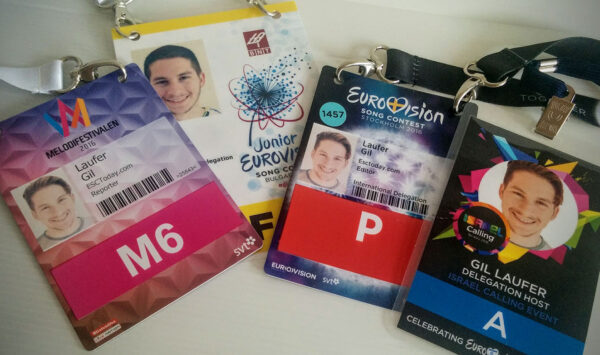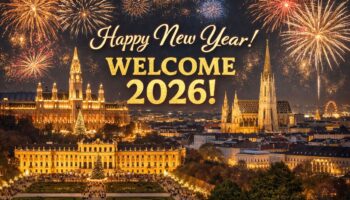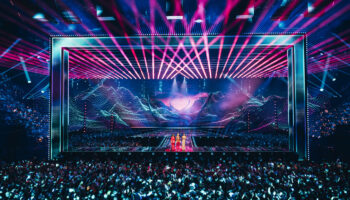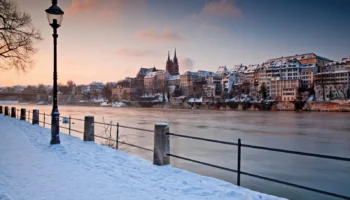The Eurovision Song Contest year of 2016 was full of activities for me. Now that the Post Eurovision Depression is slowly sinking and the outcome of this year’s contest it is definitely a good time to review the various events I was a part of as a fan, a member of the press or even a delegation host and director!
November (2015): Junior Eurovision Song Contest 2015
Let’s go a bit back to November 2015. Having the Junior Eurovision Song Contest held in Sofia, the capital of Bulgaria, seemed like a great opportunity for me to visit the country for the first time as well as to experience the contest closely. As ESCToday don’t follow the JESC closely, I showed up as a fan for the second part of the week, right to the dress rehearsals and the live show. Bulgaria and BNT did an amazing job hosting such an event for the first time ever, by terms of organisation, hospitality, technical media work and more. One just couldn’t figure out that they were out of the Eurovision bubble for two years already. At that time, their participation at the 2016 Eurovision Song Contest was not certain, but running a successful event with Poli Genova as the host probably gave BNT some ideas.
Happily, this attitude continued after the official confirmation of their comeback. BNT’s official Facebook and Twitter provided us quality content throughout the season in English and Bulgarian, featuring Poli’s selection and preparations, as well as teasers for If love was a crime that was the very last song to be revealed. Showing us that heart and soul are more important than budget and achieving Bulgaria’s best result in the contest, it is likely that the balkan country will continue to surprise us in 2017.
February: Wer singt für Österreich 2016 (Austria)
The national final season began traditionally in late December with Albania’s Festivali i Këngës. However, the real action began only in February. Being half Austrian, I decided to come back to Vienna right when the date of Wer singt für Österreich was announced, in order to check what’s up in my mom’s hometown, nine months after the city had hosted Eurovision 2015.
The national final season began traditionally in late December with Albania’s Festivali i Këngës. However, the real action began only in February. Being half Austrian, I decided to come back to Vienna right when the date of Wer singt für Österreich was announced, in order to check what’s up in my mom’s hometown, nine months after the city had hosted Eurovision 2015.
The will to go to Austria came as a surprise. Their national selection was pretty sleepy during the last few years, providing disappointing results. That’s why I was very happy to find out that fresh tunes are washing the red-white country, as well as the will to get more interest from the audience by introducing a web wildcard selection, which was pretty problematic however. On a Friday night some weeks later, I found myself on the bus to the ORF Zentrum where the selection was held. Austria proved that you don’t need to be Scandinavian in order to get your national selection well produced. Ten songs were performed and presented in the best possible way, well-selected jury members including artists, songwriters and local journalists and a cosy press room equipped Austrian drinks and some WSFÖ merchandise, where a press conference with Zoë, the winner, was also held, made the evening warm and perfect. It was only during the Eurovision Song Contest itself that I figured the main reason for Austria’s rise (like a phoenix): Hosting the Eurovision Song Contest gave ORF the ability and knowledge of how to produce a proper Eurovision national selection.
Commercial Break. #eurovision #austria #wsfö
Ett foto publicerat av Gil Laufer (@gilaufer)
Luckily, Austria chose wisely and picked the unique Loin d’ici by Zoë. Qualifying to the final had pretty much satisfied the delegation, but getting an 8th place in the final televote – as well as a second (!) place in the first semifinal televote (How shocking it might be – it was Russia first and then… Austria!), puts Austria as an important player on the Eurovision map. If ORF will opt for a national selection and WSFÖ will be held also in 2017, it is expected to be even better and more efficient.
February: A Dal 2016 (Hungary)
Talking about making a selection even better, we can take a look at Hungary, which introduced A Dal back in 2012, and celebrated its 5th anniversary this year. As most of the countries decided to cut and shorten their selections, Hungary provided the biggest amount of songs (30 in total), spread over seven shows. Knowing that Hungary brings a set of high quality and diverse local compositions (no foreigners here!) I simply had to witness the miracle closely, and decided to go to the grand final of A Dal that was held on the last Saturday of February.
Running a big number of shows for a few years, it was clear that the Hungarians know what they are doing. During the seven weeks one could get frequent updates regarding what’s going on, acoustic versions of all entries in a spin-off contest, promo performances on MTVA’s outlet and much more. With Freddie being the top favourite by our National Chart and Press Poll, it was pretty clear who is going to Stockholm before the final had started, and yet it was satisfying to see that Hungary has found its path and takes the Eurovision Song Contest seriously.
Despite getting the 19th place, Hungary has qualified to the final every year since 2011, which is amazing for a country that used to take some breaks from the contest in the past (1999-2004, 2009-10) – and with authentic local compositions! The Hungarian excellence will probably come back next year with the same format, same dates and new 30 songs that will remain in our hearts and music players forever.
March: Melodifestivalen 2016 (Sweden)
Following Melodifestivalen on location since 2014, there was no doubt I will be in Stockholm this March as well, especially when the Eurovision Song Contest was held in the same city two months later. Due to personal reasons I could only arrive a day before the final, just in time for the dress rehearsals.
Melodifestivalen 2016 After Party
Ett foto publicerat av Gil Laufer (@gilaufer)
Back in time, Christer Björkman had expressed his will to win again on home ground. The expectations from this year’s contest were high, especially after the successful 2015 edition. However the lower level of entries, together with the scandals that popped up almost every weekend (as with Charlotte Perrelli and Anna Book) made it more difficult.
Despite the lower level of songs, the final lineup was good, flowing and enjoyable. Just like in Hungary, the result was expected, and our Press Poll showed that Frans, being Sweden’s sweetheart, is going to take the sångfågeln and the victory. The Swedes are probably satisfied with the result, as 5th is much better than 14th (2013, when Sweden hosted the contest previously). Their success however comes from producing one of the best Eurovision Song Contests ever, in terms of production and content, along with the new changes introduced this year which made the voting probably the most exciting one since 1998.
April: Israel Calling (Israel)
I have never been to a pre-party before, and having one in my country, well, changed it all. With my decent knowledge and understanding of the Eurovision Song Contest, I was selected by Tali Eshkoli and Shai Barak, the organisers and producers, to be a member of the of the event’s administration team, helping mostly with ideas and graphics, and being a delegation host during the event itself, welcoming the twenty delegations that arrived in Israel and escorting them during their stay.
Apart of having breakfast with the lovely Joe and Jake, laughing with Sandhja or singing with Poli Genova, the biggest excitement came when I was chosen to be the VJ Director of the event. Being responsible for choosing, adjusting and timing the stage presence of the performances, it pretty much felt like directing my own little Eurovision Song Contest. A dream coming true.
The contact made with delegation members and artists was very essential during the Eurovision weeks in Stockholm, and definitely also for the other members of the Eurovision press which attended the event.
May: Eurovision Song Contest 2016 (Sweden)
And then it finally came. I arrived in Stockholm right for the first rehearsal of Sandhja from Finland. The work during the Eurovision weeks is challenging yet very satisfying, with long days of rehearsals, press conferences and parties (of course!). There’s a lot to say about what’s going on in these two weeks, I will focus on the Daily Press Poll, which was introduced last year in order to bring some numbers and facts from the first rehearsals and not just feelings and estimation.
As you all probably know, this year we decided to use the ability to broadcast live and present the Daily Press Poll results in a more exciting way. Happily, it all worked like a charm – the technical side was pretty much tuned and the results didn’t turned me down, predicting 17/20 qualifiers right after the first rehearsals, as well as telling that Ukraine is going to win along with the exact top 3 plus some other placings.
Yet another successful live broadcast of the Daily Press Poll on @esctoday! #Eurovision
Ett foto publicerat av Gil Laufer (@gilaufer)
Eurovision is really all about coming together, and more than predicting the results it was amazing to see the members of the press – from different countries, websites and outlets – all willing to share, collaborate and help each other. Those of you who were awake could see it all live, when some of my close colleagues of ESCToday and other outlets helped me to present the final results.
Meeting dozens of new people and having great rates of interest, left me mostly motivated with the will to bring Eurovision to everyone in new and innovative ways. If everything will go just as planned, I’ll be moving to Sweden this summer. It means doing the whole Melodifestivalen 2017 tour and probably some more exciting selections around as Eesti Laul.
Special thanks to the rest of the ESCToday team for the amazing work and collaboration, and to you – the readers and followers, who are with us throughout the years and this year as well. Being on the team of ESCToday since 2008, it still makes me excited to read comments and reactions from fans, artists, delegations and national media outlets, and see my small contribution to our beloved world of the Eurovision Song Contest. I would personally like to hear your opinions and thoughts about everything we’ve been through this year, so feel free to contact me as well.
(And if you want to join me for the next year’s activities – you have the opportunity to join us! Check the details below)




